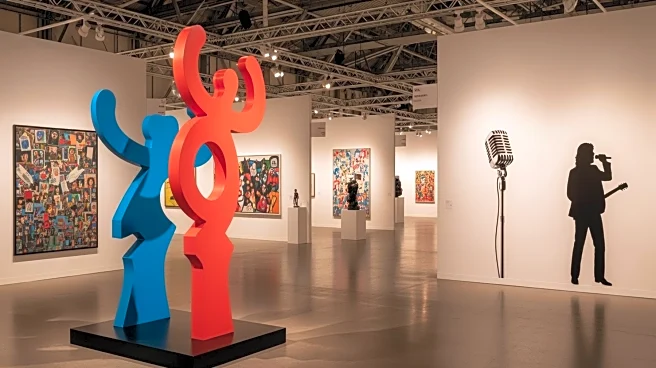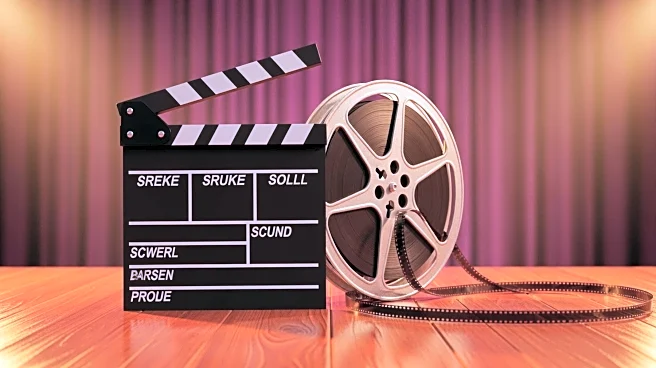What's Happening?
Frieze London 2025 has become a focal point for art enthusiasts, featuring notable events and personalities. Among the highlights is a meeting between Mick Jagger and Michelangelo Pistoletto at Nahmad
Projects' exhibition, which showcases Pistoletto's Mirror Paintings alongside Cubist works by Pablo Picasso. The event also included a dinner attended by Leonardo DiCaprio. Additionally, the fair featured a unique installation by artists Elmgreen & Dragset, titled 'The Audience,' which critiques the art world's fleeting attention spans through a film loop of abstract images. Another standout was Russian performance artist Petr Davydtchenko, known for his tattoos protesting pharmaceutical companies, including the word 'Pfizer' inked on his forehead. His work, 'Skin in the Game,' has been acquired by A/POLITICAL, a collection focused on politically engaged art.
Why It's Important?
Frieze London serves as a significant platform for cultural exchange and artistic expression, attracting global attention and influential figures from various industries. The presence of celebrities like Mick Jagger and Leonardo DiCaprio underscores the intersection of art and popular culture, enhancing the fair's visibility. The event also highlights critical social issues, such as Davydtchenko's protest against pharmaceutical companies, reflecting the art community's role in addressing global challenges. This convergence of art, celebrity, and activism at Frieze London reinforces the fair's status as a cultural powerhouse, capable of influencing public discourse and artistic trends.
What's Next?
As Frieze London continues, it is expected to further engage audiences with its diverse array of exhibitions and discussions. The fair's focus on contemporary issues may inspire future artistic projects and collaborations, potentially influencing the broader art market. Stakeholders, including artists, collectors, and cultural institutions, may respond to the themes presented, fostering dialogue and innovation within the art community. The fair's impact on London's cultural landscape could also prompt discussions on the city's role as a global art hub, especially in the context of geopolitical shifts and post-Brexit dynamics.
Beyond the Headlines
The events at Frieze London highlight the evolving relationship between art and activism, as artists increasingly use their platforms to address societal issues. Davydtchenko's tattoos exemplify the use of body art as a form of protest, challenging traditional notions of artistic expression. This trend reflects a broader movement within the art world, where creators are leveraging their work to provoke thought and inspire change. The fair's emphasis on such themes may encourage a reevaluation of art's role in society, prompting discussions on ethics, representation, and the power of visual media.









